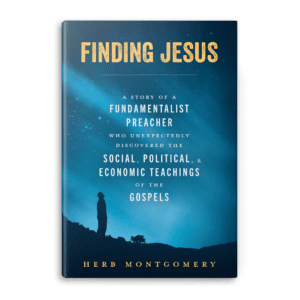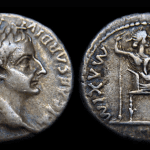
Matthew’s Version
Remember that Matthew’s audience was much more Jewish than Luke’s. Luke’s community of readers was more cosmopolitan, and Luke was written in the wake of Paul’s and others’ work to include Gentiles in the Jewish Jesus community.
Welcome Readers! Please subscribe to Social Jesus Here.
(Read this series from the beginning at Part 1 and Part 2.)
Matthew, on the other hand, was written for a Galilean audience. Although that audience included Gentiles, it was a much more Jewish concentrated community of Jesus followers. Like Luke’s gospel, Matthew’s was also written after the Roman destruction of Jerusalem in 70 C.E. These Jewish Jesus followers, like all Jews at this time, were wrestling with what to make of a world that no longer had a Jewish temple and in which Jerusalem was destroyed. In this context, Matthew’s author adapts the parable to their community’s needs: it becomes a parable that explains the destruction of Jerusalem as the result of the leaders’ rejection of the Torah’s economic teachings, especially in regards to the poor. These poor people revolted in the poor people’s revolt of the mid 60’s C.E. Their revolt led to the Roman Jewish War of 66-69 C.E., which in turn resulted in the destruction of Jerusalem the following year.
I want to steer clear of supersessionism here: I don’t interpret Matthew’s parable as anti-Jewish or pro-Christian. That would be harmful and overly simplistic. Again, Matthew’s community was composed of a large number of Jewish Jesus followers in and around Galilee. When Matthew refers to an enraged king who sends his army to destroy murderers and burn their city, he is referring to a long history of the elites and the powerful, those who economically benefited from a system that impoverished others, repeatedly rejecting the economic teachings of the Torah in relation to the poor, the Hebrew justice prophets’ call to return to those teachings, and Jesus’ call to do the same. Jesus stood squarely in the justice tradition of the Hebrew prophets. And so this parable tell its audience that the recent events in Jerusalem were caused by the refusal to embrace economic principles that would have eradicated poverty in their society.
This is important. This is not a parable that says Jerusalem was destroyed because “the Jews rejected Jesus.” No. That is an anti-Jewish interpretation. Rather, this parable claims that Jerusalem was destroyed for refusing to take care of the poor. And that interpretation can lead us to advocate for an end to poverty.
Interpreting this passage in terms of poverty harmonizes with the Hebrew prophets as well. Notice why they stated Sodom and Gomorrah were destroyed:
“Now this was the sin of your sister Sodom: She and her daughters were arrogant, overfed and unconcerned; they did not help the poor and needy.” (Ezekiel 16:49)
Making this connection also helps us understand the last portion of the parable about the person found without a wedding garment. At the time of Matthew’s writing, the community was expanding the invitation into Jesus’ kingdom to those outside of Jewish society. But that invitation still came with the warning that weddings require appropriate attire. Jesus’ kingdom here on earth requires regard for people harmed by our world’s systems. If we disregard the social harm being done to others, especially those most vulnerable to that harm in our present system, we will end up just like those in the parable who were originally invited.
And this leads me to one application to our context today. All are invited to sit at the table of justice but not all are welcome: this table that we sit down to requires that we stand for something. The justice table is about justice for everyone: justice for women, justice for people of color, justice for the LGBTQ community, justice for Indigenous people, justice for the poor and the list could go on. This table is about justice for everyone, especially those the present system does harm. And everyone is invited to the table. But to be welcome at that table, one has to take off the garments of patriarchy and put on the clothes of egalitarianism. One has to take off the garments of racism and put on the clothes of racial justice and inclusion. One has to take off the garments of White supremacy and authoritarianism and put on the clothes of a diverse, democratic society. One has to take off the garments of homophobia, biphobia, and transphobia and put on the clothing of equality. One has to take off the garments of colonialism, and put on the clothing of reparations and repentance. One has to take off the garments of classism and put on the clothing of resource sharing, wealth redistribution, and equity.
All are invited, and not all are welcome. To be welcome at the kingdom table, you have to embrace the values, ethics, and principles for which the table stands, because this is a table that is first and foremost about transforming our present world into a safe, compassionate, just home for everyone.
 Herb’s new book, Finding Jesus: A story of a fundamentalist preacher who unexpectedly discovered the social, political, and economic teachings of the Gospels, is now available at Renewed Heart Ministries.
Herb’s new book, Finding Jesus: A story of a fundamentalist preacher who unexpectedly discovered the social, political, and economic teachings of the Gospels, is now available at Renewed Heart Ministries.














